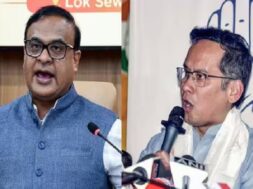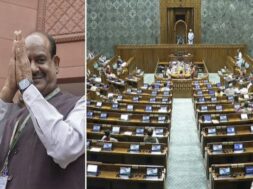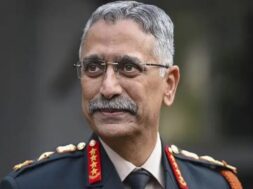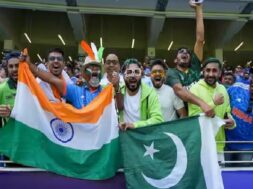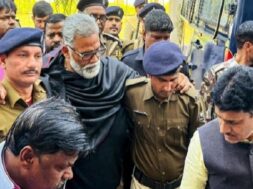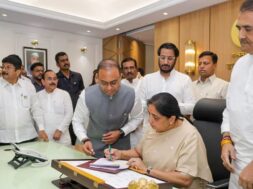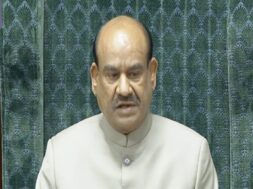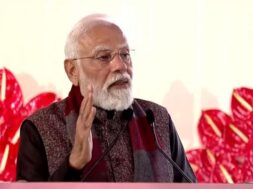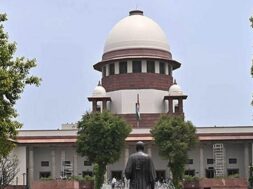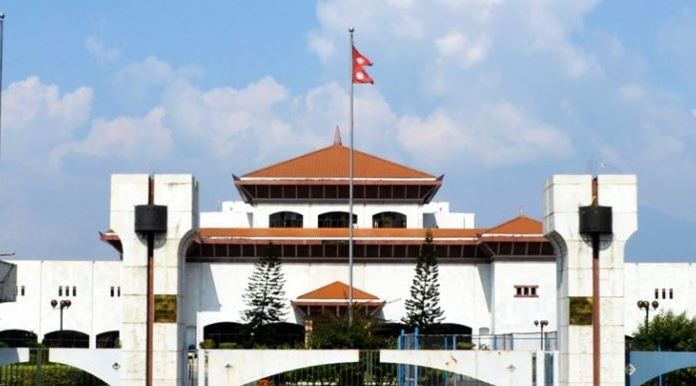
Surprise Move by PM Oli, Nepal Parliament Dissolved, Country Headed for Fresh Elections in April-May
Manas Dasgupta
NEW DELHI, Dec 20: Playing one up on his critics within the ruling party, the Nepal prime minister K P Sharma Oli has got the national Parliament dissolved two years ahead of the present tenure to end in 2022 paving way for a split in the Nepal Communist Party that could displease his recent friend China.
Unable to settle the disputes with the rival factions led by the former prime minister Pushpa Kamal Dahal Prachanda, Oli after a meeting of his cabinet at his residence on Sunday morning recommended the president to dissolve the 275-member House of Representatives.
The President Bidya Devi Bhandari immediately accepted the recommendation and dissolved the House and also forthwith announced dates for the next national elections to be held in two phases on April 30 and May 10.
The speed at which the entire process from convening cabinet meeting and finalizing the recommendations and the president acting on it and even announcing the next dates elections has raised the eye-brows of many Nepal watchers with some experts concluding the action to be unconstitutional.
Several legal and political experts said it was a coup on the constitution of Nepal called the sudden move unconstitutional. “It’s a coup on the constitution by the executive head.” The rival faction within the party caught unaware of the sudden development claimed that the Nepal constitution did not have any provision for dissolution of Parliament by the prime minister even if he enjoyed majority status.
Senior leader of the NCP and former Prime Minister Jhalnath Khanal said Oli would pay the price for taking this “extreme and unconstitutional act” without taking the party into confidence, while Oli’s close aide Rajan Bhattarai said the prime minister had made the move due to the backlash against him from his party, which had also asked him to consider quitting as its president.
“So he decided to face the people in an election,” Bhattarai told the media after the dissolution of the House. “This is the best way in a democracy,” he added.
The Oli decided to recommend dissolution after amid a power tussle within the ruling Nepal Communist Party. Senior leaders in the party believe this will lead to expulsion and counter expulsion of leaders followed by a split soon. There are also chances of the decision being challenged in court.
Oli’s loss of majority in crucial bodies in the party – central secretariat, standing committee and the central committee – and dissidents labelling charges of corruption against the party is believed to have pushed the infighting to a point of no return.
Opposition MPs had been contemplating moving ‘impeachment’ motion against the president which the dissolution of the House has now thwarted.
It was just about three years ago after the 2017 general elections that Khadga Prasad Sharma Oil had taken over as the prime minister for the second time and a year later further strengthened his position by uniting the two factions with the merger of his Communist Party of Nepal (Unified Marxist–Leninist) and his rival Pushpa Kamal Dahal aka Prachanda’s Communist Party of Nepal- Maoist Centre.
Bishnu Rijal, a central committee member of the ruling Nepal Communist Party said instead of seeking a compromise within the party, Oli had chosen to dissolve Parliament. “The prime minister has lost the majority in the parliamentary party, central committee and the secretariat of the party,” he claimed.
.According to the experts on Nepal, for months, Prachanda had been trying to pin Oli down and had led several rounds of revolts against the prime minister demanding a greater say in the government. Oli, who had led them to victory on the basis of a nationalist agenda, however, had refused to cede any space and dropped enough hints that he was prepared to split the communist party if he was pushed to the wall, an eventuality China’s communist party had been struggling to avoid.
Beijing had deputed its envoy to Nepal Hou Yanqi for rapprochement between the two warring factions. She held a series of meetings in late April and early May for consultations with Nepal’s communist leaders to get them to stay united.
Ambassador Hou continued her interventions to keep the NCP in one piece over the next few months. But getting enough hints that China would not mind sacrificing Oil for the sake of keeping the NCP together, reportedly shunted the Chinese negotiator from any talks within the party suggesting that he was capable of handling challenges within his party without any assistance from other countries.
Oli, who had spent 14 years in jail for opposing the now-abolished monarchy in the 1970s and 1980s, wasn’t ready to fade into oblivion yet. Nepal watchers said China, which initially seemed to back 68-year-old Oli, had changed tack earlier this year and was willing to sacrifice him if it would help keep the NCP united.
The Chinese diplomat though kept herself in the loop while maintaining a low profile and was believed to be working on various alternatives at the instance of Beijing including one dumping Oli and promoting his deputy Bamdev Gautam instead. But Oli’s Sunday surprise, however, upended the Chinese efforts as well.

